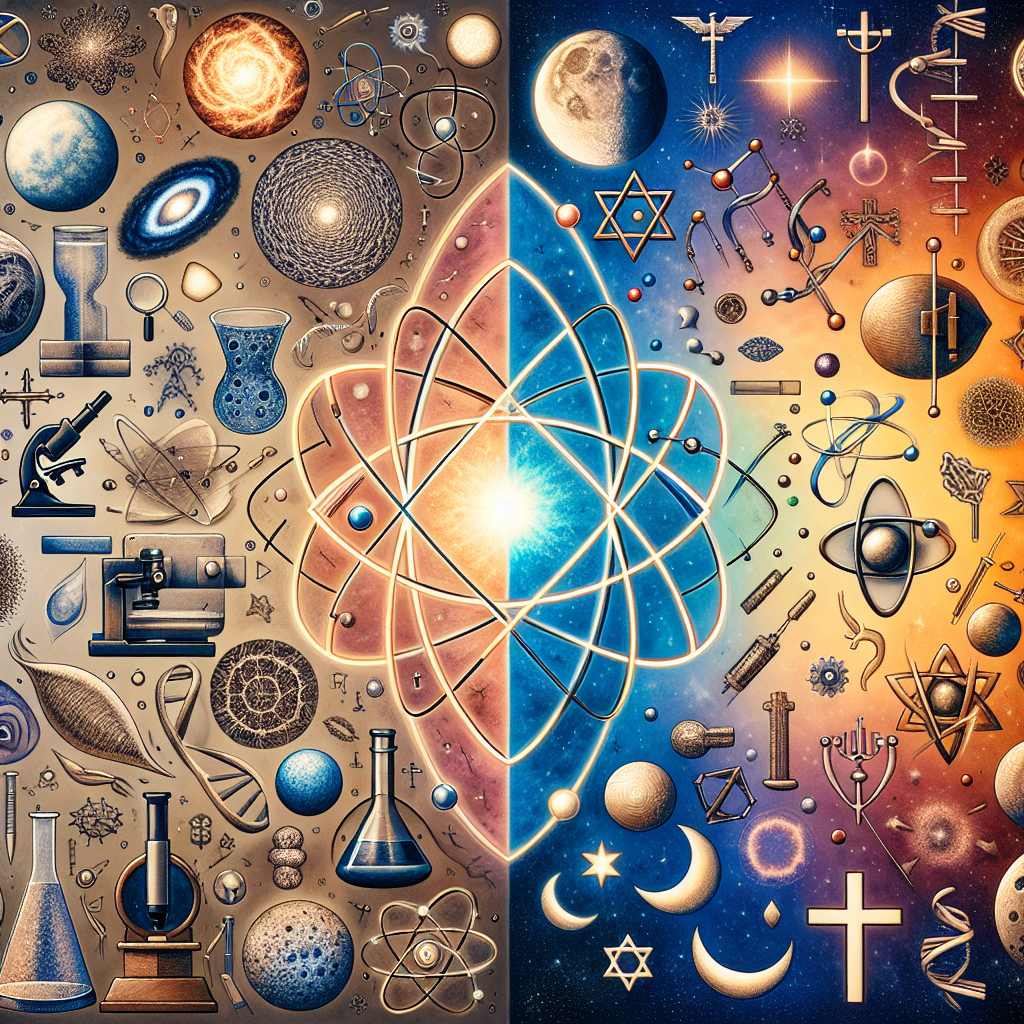In a world often perceived as divided between faith and reason, the intersection of biblical wisdom and scientific understanding offers a unique opportunity for harmony and enlightenment. This article delves into the profound truths found in sacred texts and the rich discoveries of modern science, demonstrating how they can complement one another, enrich our understanding of life, and inspire a deeper appreciation for the world we inhabit.
The Search for Truth
At the heart of both biblical wisdom and scientific exploration is a shared quest for truth. Individuals seeking answers to life’s most pressing questions—about existence, purpose, and morality—turn to the Bible for guidance, while scientists employ empirical methods to illuminate the mysteries of the universe. Both approaches reflect a sincere desire to understand our surroundings and our place within them.
The Bible, an anthology of texts spanning thousands of years, offers valuable insights into human nature and the divine. Teachings on love, compassion, forgiveness, and stewardship reveal fundamental truths that resonate across cultures and generations. These timeless principles encourage individuals to seek harmony not only within themselves but also within their communities and the environment.
Simultaneously, science unravels the complexities of the natural world, from the microscopic workings of cells to the expanses of the universe. Scientific inquiry reveals the laws that govern the physical realm, helping us to understand everything from gravity to the intricacies of the human body. While methodologies may differ, the pursuit of knowledge—a pursuit often described as a form of worship—binds together seekers of truth.
Bridging Faith and Science
One of the most encouraging aspects of exploring the intersection of biblical wisdom and scientific understanding is how both can coexist and complement one another. For instance, the principles of stewardship and care for creation found in Genesis align closely with scientific calls for environmental sustainability. Biblical teachings urge us to "care for the Earth" (Genesis 2:15), while scientists emphasize the importance of preserving biodiversity and combating climate change for future generations.
Furthermore, advancements in fields such as medicine, psychology, and neuroscience provide scientific validation for many biblical principles. Concepts of love, community, and forgiveness are not only celebrated in religious teachings but are also supported by research demonstrating their positive effects on mental and physical health. For example, studies show that individuals who engage in altruism and practice forgiveness experience lower levels of stress and enhanced well-being. These findings echo the biblical principles of love and reconciliation, highlighting the mutual reinforcement of faith and science.
Inspiring a Holistic Approach
Integrating biblical wisdom with scientific understanding inspires a holistic approach to life. The ancient psalmist proclaimed, "The earth is the Lord’s, and everything in it" (Psalm 24:1). This perspective encourages us to view the universe as an interconnected whole, where every discovery in the natural world enhances our understanding of its Creator.
By embracing both faith and science, individuals are empowered to cultivate critical thinking while maintaining a sense of wonder and awe. For example, the intricacies of evolution reveal the complexity of life’s diversity, while also prompting contemplation about the creative forces that shaped our world. This interplay encourages exploration and curiosity, leading to a more profound appreciation for the divine mystery that envelops our existence.
Cultivating Dialogue and Collaboration
Promoting dialogue between religious communities and scientific institutions is essential. Fostering respect and understanding can lead to collaborative efforts that address pressing global challenges. Issues such as climate change, public health crises, and social justice require a multifaceted approach, drawing on the wisdom of various disciplines.
Educational initiatives that celebrate both science and faith can inspire future generations to pursue knowledge compassionately and responsibly. By cultivating critical thinking alongside spiritual growth, young people can navigate the complexities of a rapidly changing world without sacrificing their values.
Conclusion
The intersection of biblical wisdom and scientific understanding offers pathways to profound insight, compassion, and hope. By exploring this dynamic relationship, we can overcome perceived divides and engage in a transformative dialogue that enriches our lives and communities.
As we celebrate timeless truths found in both scripture and science, we are encouraged to pursue knowledge with humility and to seek a deeper understanding of our interconnected existence. In doing so, we not only honor our diverse human heritage but also embrace a shared journey towards truth, love, and the betterment of all creation. By allowing these realms to inspire and uplift us, we can cultivate a future marked by harmony, unity, and purpose.
Explore and dig up answers yourself with our BGodInspired Bible Tools! Be careful – each interaction is like a new treasure hunt… you can get lost for hours 🙂


